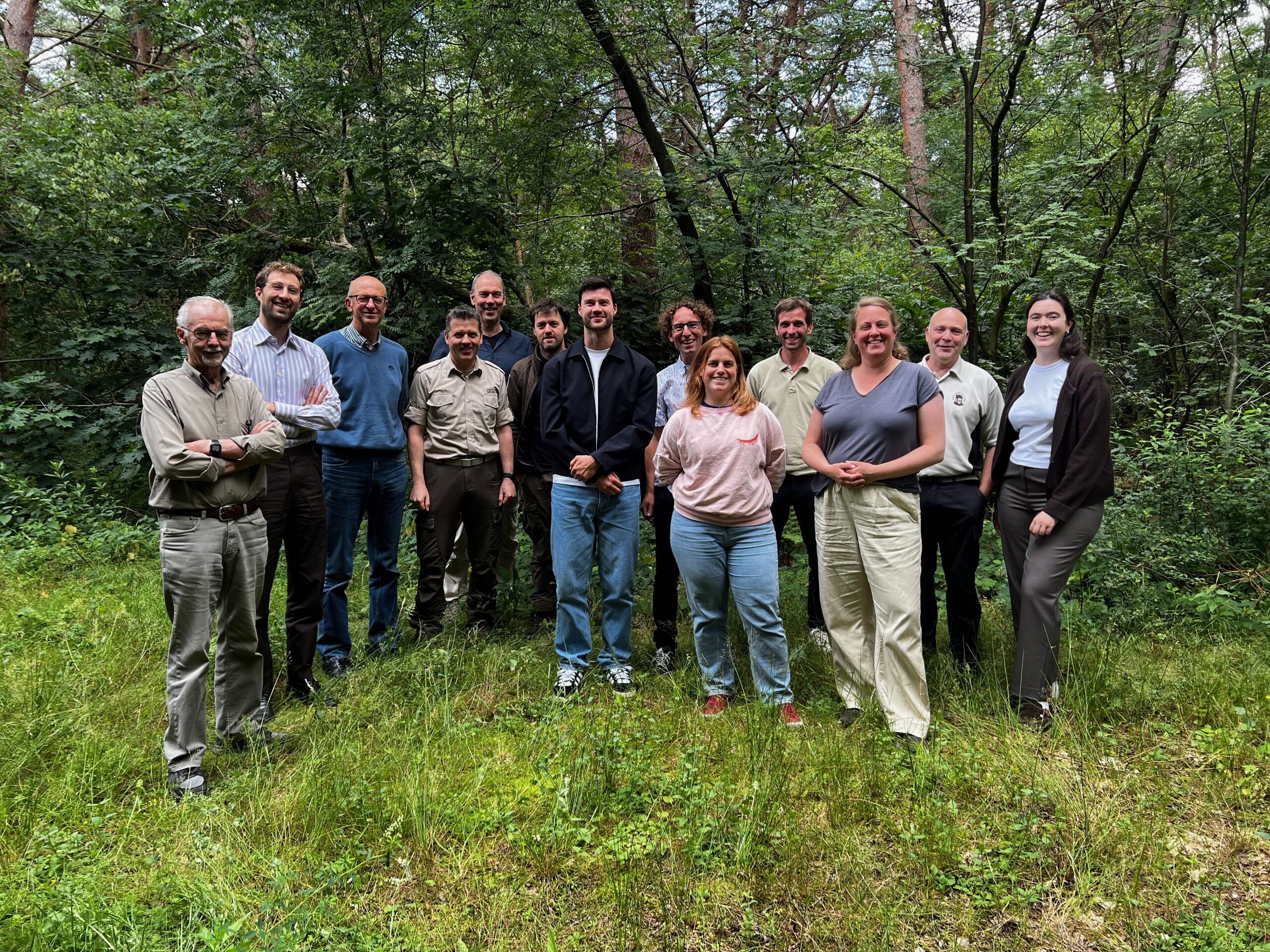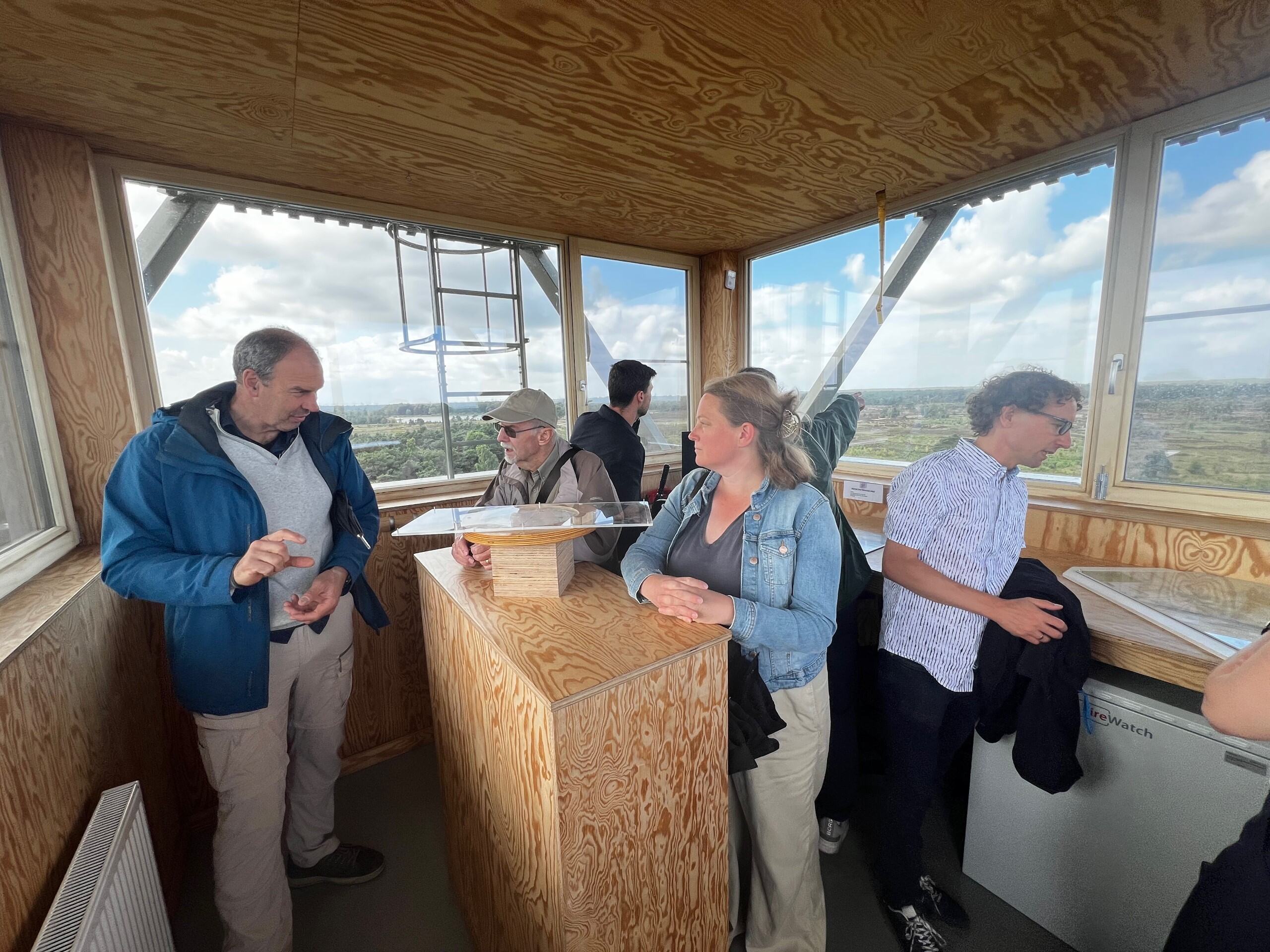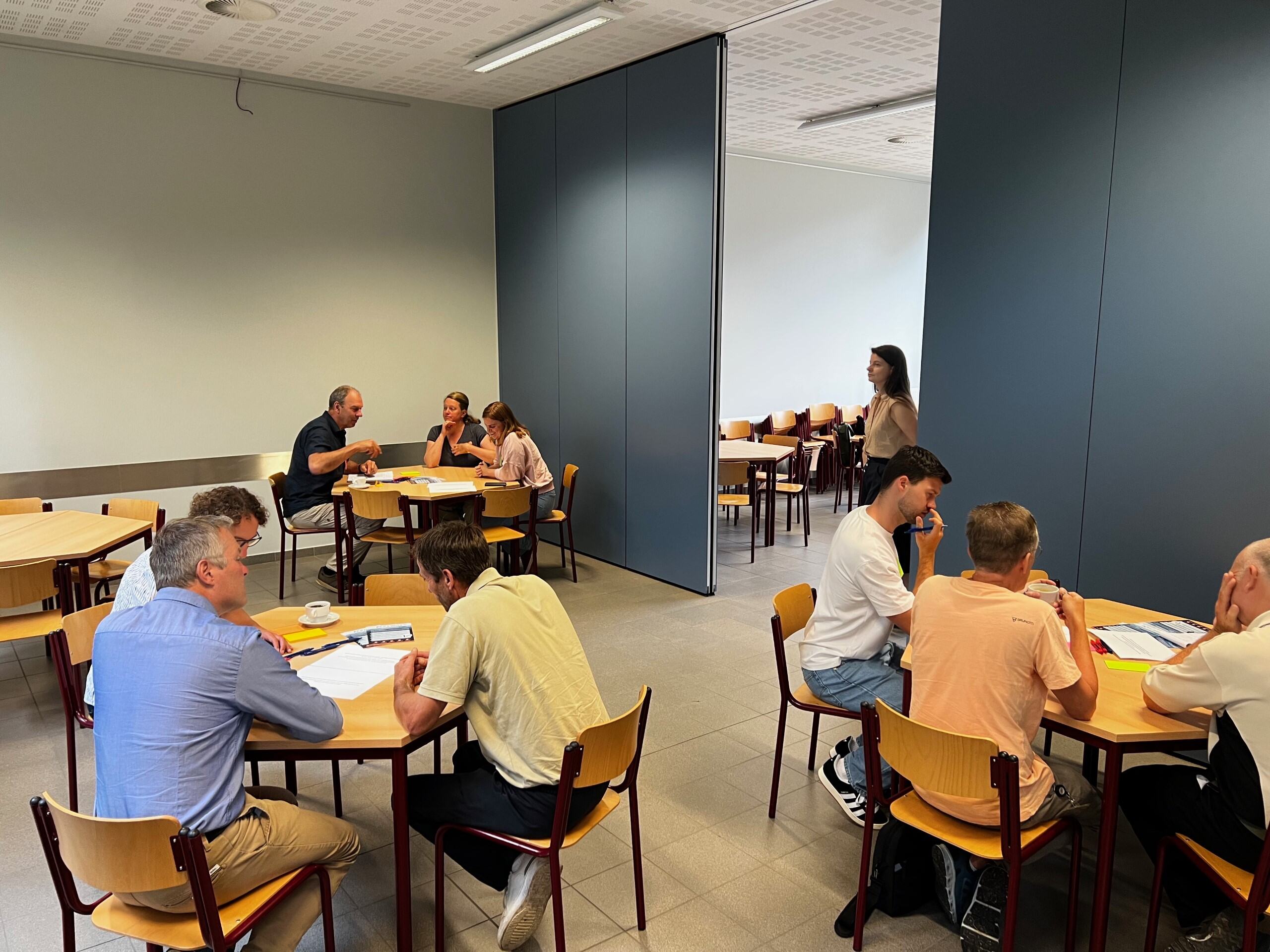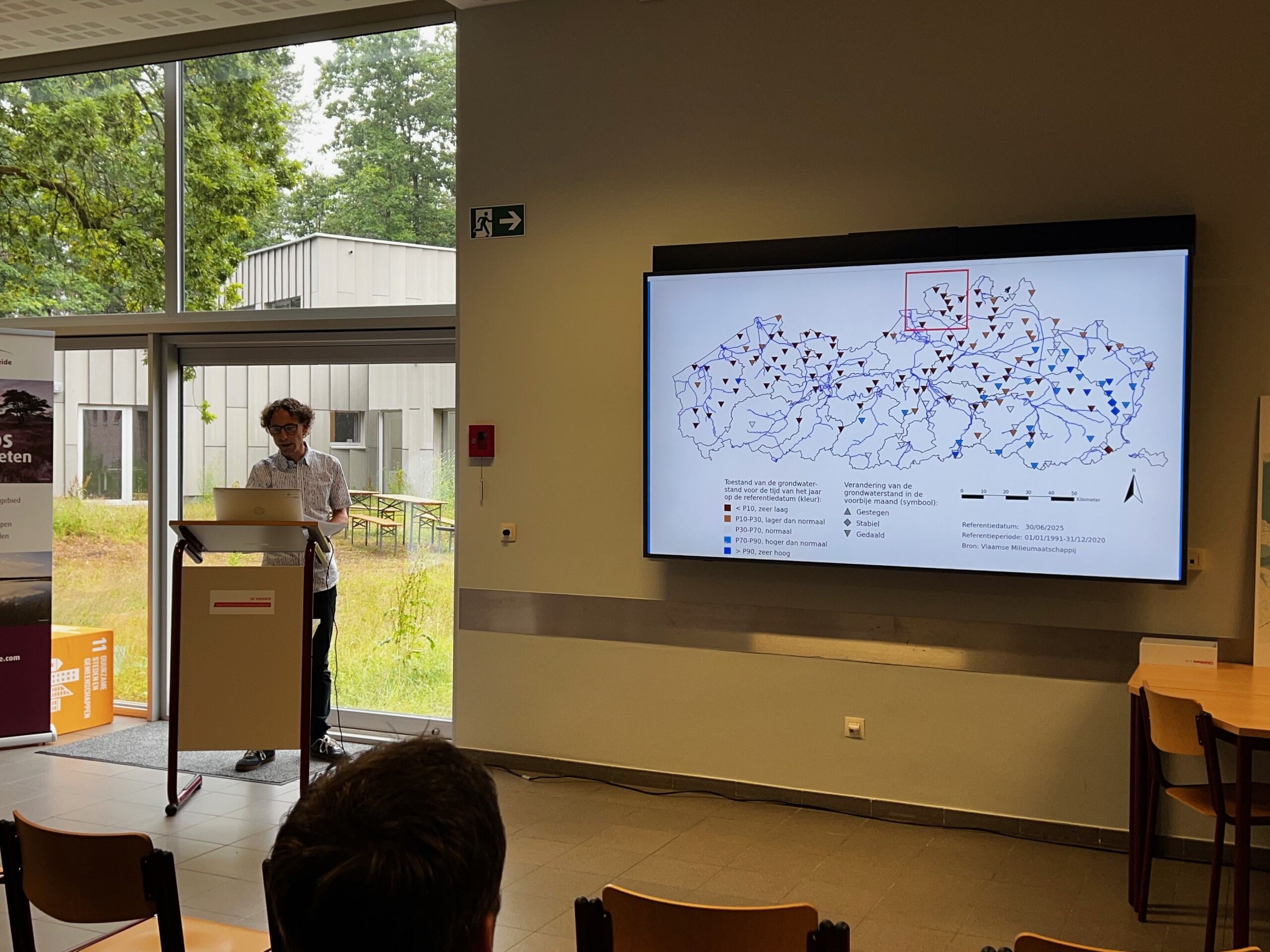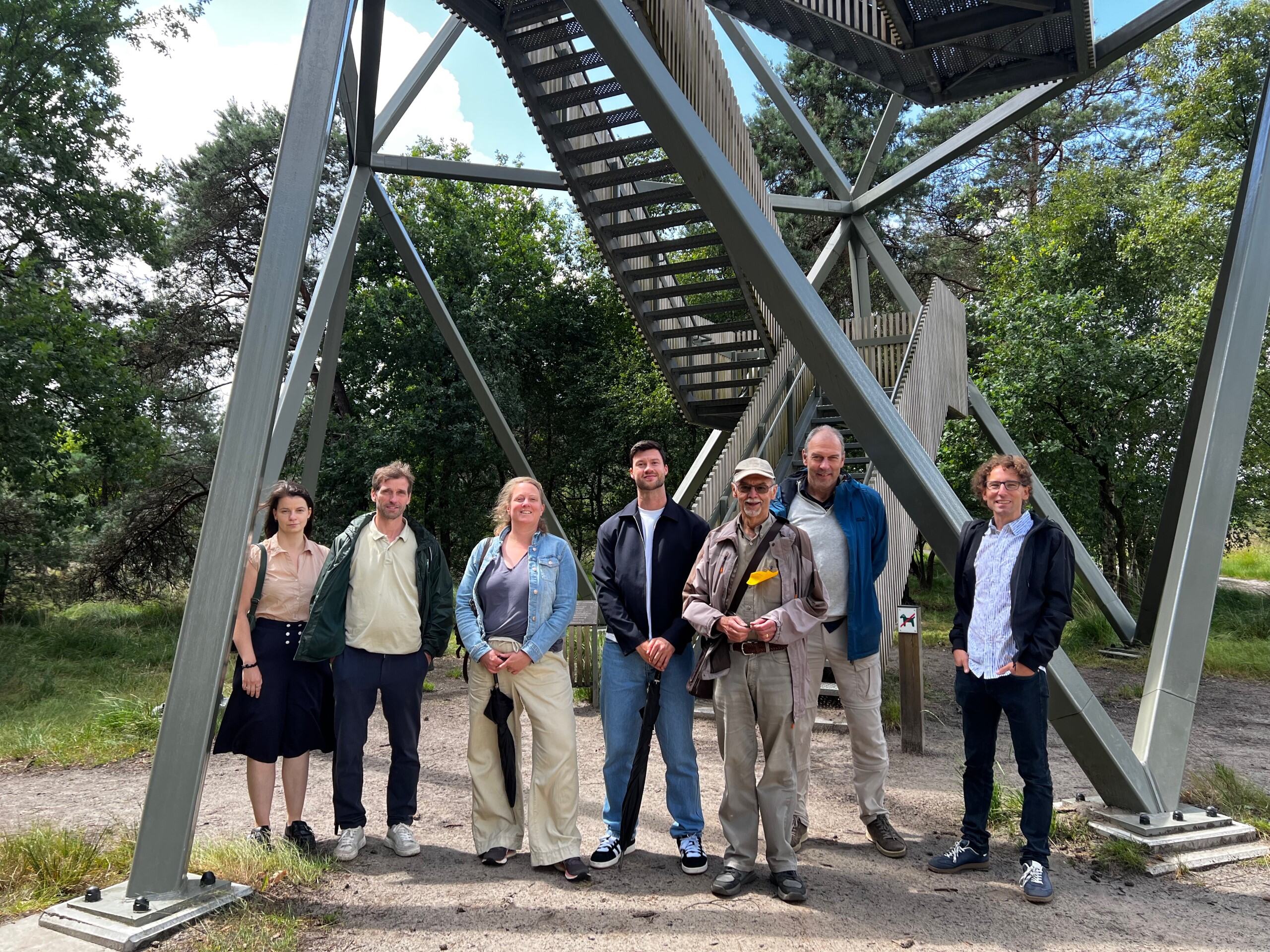On 8 July 2025, PCP WISE brought together a diverse group of stakeholders—ranging from local municipalities like Roosendaal, NL to water authorities, forest managers, and dedicated volunteers—for a full-day site visit and interactive workshop in Grenspark Kalmthoutse Heide, a unique cross-border nature reserve spanning Belgium and the Netherlands.
This visit focused on water innovation in its many forms—from long-term climate resilience to day-to-day operations and crisis management—and was structured around the sensemaking methodology, which encourages participants to reflect on how they perceive, understand, and act within complex systems.
Key Insights from the Field
Cross-border complexities:
Managing a transboundary area presents ongoing challenges. Stakeholders highlighted the urgent need for harmonised datasets—from vegetation and soil metrics to water levels—that extend beyond national borders. Differences in reference systems, fire risk categorisations, and data availability between BE and NL create obstacles for coordinated action.
Data is there—but fragmented:
A wide range of open-source data (e.g., remote sensing, groundwater, and biodiversity data) is technically available but often underused. Some critical datasets—like consistent soil moisture or ecosystem resilience indicators—are still being developed or lack visibility among practitioners.
The need for clarity and accessibility:
Participants emphasised a strong desire for AI-supported dashboards that could make data more accessible and understandable for non-experts. There was also a shared call for objective, reliable information that can be easily communicated to decision-makers and the public.
From Discussion to Observation
The group also took part in an excursion to the park’s fire tower, where they explored how AI-equipped cameras and a dedicated network of volunteers work together to monitor fire risk across the reserve. This hands-on visit provided valuable insight into the real-world application of smart monitoring tools—and highlighted the challenges of cross-border alignment, as fire risk mapping differs between the two countries.
Policy, Practice & PCP WISE
Discussions touched on key policies such as Belgium’s Blue Deal and Dutch subsidies for climate adaptation in agricultural zones. However, applying these strategies on the ground often reveals conflicting priorities and trade-offs—especially when weighed against short-term cost-benefit calculations.
Participants explored how tools like GIS, Copernicus data, water zoning, and communication strategies are currently used—and how they could be improved through PCP WISE solutions. The hope: to create a shared, automated system that delivers up-to-date, unbiased data for all users.
What’s Next?
This series of site visits marked an important milestone in PCP WISE’s user engagement process. Insights gathered are now being used to shape the PCP WISE upcoming Call for Tenders.
A big thank you to our hosts at Grenspark Kalmthoutse Heide for the warm welcome, local expertise, and engaging discussions.
Stay tuned!
